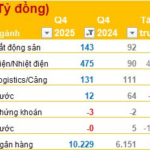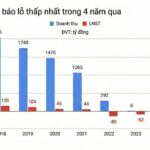
Deputy Governor of the State Bank of Vietnam Pham Thanh Ha speaks at the Conference – Photo: VGP/Nhat Bac
|
According to Mr. Ha, in practical operation, the State Bank of Vietnam (SBV) and the Ministry of Finance also regularly exchange information on the currency market, stock market, bonds… to unify communication messages, create trust for domestic and foreign investors, maintain market stability; complete the legal framework related to the stock market in general, and the bond market in particular.
The results of monetary policy implementation have contributed to stabilizing the macroeconomy, controlling average inflation in 2023, maintaining stability of the currency and foreign exchange markets, and consolidating the state’s foreign exchange reserves. These are contributing factors for Fitch to upgrade Vietnam’s long-term credit rating to BB+, with a “Stable” outlook; it has important significance in the effort to enhance Vietnam’s position and reputation in the international arena.
Currently, the Vietnamese Stock Market (VSM) is classified as Group 3 – Frontier Market by two market rating organizations, MSCI and FTSE Russell. Specifically, FTSE Russell is currently putting Vietnam on the list of upgrade waiting list to Group 2 – Emerging Market. The development of the VSM plays an important role and significance in the development of the economy and businesses. Regarding the Banking System, the VSM development supports commercial banks (CBs) in issuing stocks and bonds to increase capital to create additional long-term capital sources to meet the capital needs of individual and institutional customers, while ensuring safety ratios according to the regulations of the SBV.
The SBV always cares about and actively cooperates with the Ministry of Finance in finding solutions to serve the stock market upgrade. The SBV has collaborated with the two rating organizations to answer questions and solve problems of investors related to the banking sector, step by step developing the foreign exchange market, supporting foreign exchange liquidity when necessary to serve the increasing demand of investors, especially foreign investors.
According to forecasts, in 2024, the global economy will continue to face difficulties under the impact of tight financial conditions, geopolitical conflicts, and increasing financial risks. Global inflation is expected to continue its slowdown trend but still higher than the target in many countries in the context of the risk of energy, food, and agricultural crises due to the strategic competition between major countries. The domestic economy continues to face challenges as global demand has not recovered strongly. However, with the delay of continuously implemented economic support measures since the beginning of 2023, along with the Government’s resolute directions in resolving difficulties in the real estate market and corporate bonds, thereby helping markets gradually recover, the economic growth forecast for 2024-2025 may recover compared to 2023. Some international organizations forecast Vietnam’s GDP growth in 2024 to be 5.5-6.5% and in 2025 to be 6-7%.
In implementing the directive of the Prime Minister, to jointly support the safe, transparent, effective, and sustainable development of the stock market in 2024 and the following years, in the coming time, the SBV will closely monitor market developments, domestic and foreign economic situations, closely coordinate with financial policies to proactively, flexibly, and consistently manage monetary policy tools and solutions to control inflation, contribute to macroeconomic stability and promote sustainable economic growth.
The SBV will continue to flexibly manage the open market operations to ensure liquidity for the system of credit institutions; actively, flexibly manage and control interest rates and exchange rates in accordance with macro balance, inflation, and monetary policy objectives; actively manage the growth of volume and structure of credit, meet the credit capital needs of the economy to contribute to inflation control, support economic growth…
Together with policies to attract resources, domestic and foreign investments to the stock market, the SBV’s proactive, flexible, and coordinated management of monetary policy tools in accordance with the actual situation, maintaining stability in the currency, foreign exchange, and exchange rates will contribute to achieving higher effectiveness of policies to attract foreign capital sources; help build trust for investors in a stable business environment; create a stepping stone for attracting more foreign capital sources for investment and developing the stock market in the future.
However, in the context of the medium and long-term capital demand of the large-scale economy, which mainly relies on the banking system, medium and long-term credits account for a relatively large proportion and have been and are creating pressures and risks for credit institutions’ system when the capital source is mainly short-term. To develop a synchronous, transparent, and sustainable financial market, develop a stable and safe stock market, increase efficiency, and have a reasonable and balanced structure, positive support between the currency market and the capital market, the SBV recommended the Ministry of Finance and the State Securities Commission to:
– Continue researching, reviewing, and improving the legal framework on the stock market in general, and the bond market in particular, creating favorable conditions for credit institutions to issue stocks and bonds in the market; at the same time, coordinate with relevant ministries and sectors to implement synchronous solutions for the development of the stock market.
– Diversify investors participating in the market, encourage funds, insurance companies, foreign investors, etc. to participate more deeply and widely in the market.
– The Ministry of Finance should continue to provide close information to the SBV to strengthen coordination between monetary policy and fiscal policy.












